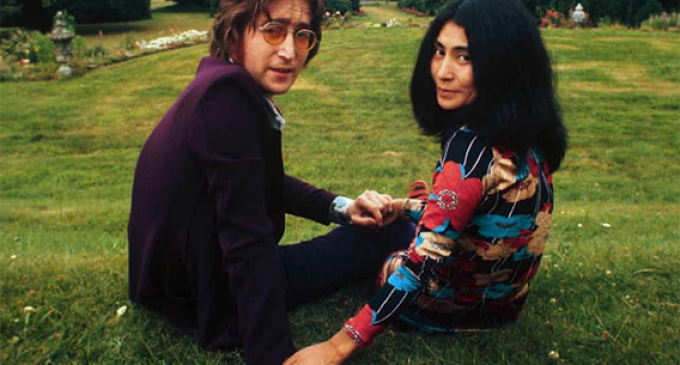Being John Lennon: A Restless Life by Ray Connolly review – just a complicated guy | Books | The Guardian

There are several “definitive” biographies of John Lennon, and even more tomes claiming to provide the ultimate lowdown on the Beatles’ well-documented career. The first volume of Mark Lewisohn’s projected trilogy on the Fabs alone runs to more than 900 pages. In addition come scores of memoirs by friends, associates and exes, and explorations of every episode and facet you care to name – the Beatles and religion, when the Beatles met Elvis, the FBI and John Lennon – and even the odd critique of their music. What’s left to add?
A veteran journalist and screenwriter (That’ll Be the Day, Stardust), Ray Connolly lays no claim to fresh revelations about the life of the group’s self-styled leader, instead offering insights into Lennon’s complex, contradictory character. He’s well qualified, having struck up a camaraderie with Lennon over the late 1960s/early 70s; a major regret is not announcing the Beatles’ imminent split after Lennon had tipped him off. “But you said not to tell anyone,” he complains to John after McCartney had beaten Lennon to the punch. “You’re the journalist, Connolly,” fires back Lennon.
Connolly is hardly the first to trace Lennon’s mixture of aggression, ambition and vulnerability to a fractured childhood that saw him abandoned by a ne’er-do-well father and a good-time-girl mother to be raised by his aunt Mimi, a prim, suburban snob. At 17 came the trauma of his mother Julia’s death after she was run over by an off-duty policeman close to Mimi’s house – she and John had recently become close. The scars never faded.
When considering Lennon’s “enormous personality” – obsessive, cruel, kind, conceited yet oddly gullible – nature and nurture prove hard to disentangle. Despite his intelligence and a middle-class home, teenage John was a troublemaker at school, and lazy with it, leaving without qualifications. He was similarly idle at art school, interested only in girls and the nascent Beatles, into which he inducted his friend Stuart Sutcliffe, a talented painter but no musician. In his solo years, John liked to style himself “an artist”, but as his tutor put it, “Without Stu Sutcliffe, John wouldn’t have known Dada from a donkey”.
Lancashire-born, Connolly perfectly captures the shabby conformism and deference of post-war Britain that the Beatles would help to overturn. He handles their much-told tale with welcome concision – the transformative descent into the underworld of Hamburg, the worldwide fame that even now astonishes, the acrimonious bust-up. He deals with the difficult subject of Yoko deftly, not blaming her for the Beatles’ dissolution – after all, pop groups in their late 20s frequently break up – but pointing out that Paul and George had every right to resent her presence in the studio because “whatever her talents, they did not include, at that time, an ability to make or understand popular music”.
For Connolly, John was not merely in love with Yoko but “mesmerised” by her and “subsumed his personality into hers”. Together they became a brand, JohnandYoko, wearing the same clothes and haircuts, sharing the same stage, appearing nude together on the Two Virgins cover, jointly promoting peace via bed-ins and records such as Happy Xmas (War Is Over) and Imagine. After Yoko introduced John to heroin, they shared the same drugs.
Not all Beatles fans were happy with Yoko’s arrival. A strong streak of racism was in play (even Mimi referred to her as “the poison dwarf”), but John didn’t care. “The trouble is I’ve spoiled my image. People want me to be lovable, but I was never that. Nobody ever thought of me as cuddly,” he told Connolly.
Relocation to New York in 1971 seemed, at first, to energise Lennon, but by 1974 the couple’s marital bliss had curdled, with Yoko licensing an 18-month affair with an employee, May Pang. Lennon called it his “lost weekend”, but as Connolly points out, he had never been so welcoming to old friends like McCartney, Jagger, Elton and Bowie, gaining chart-toppers with the latter two.
Once John and Yoko’s son, Sean, was born, in 1975, silence ensued. Officially, John has become a bread-baking househusband while Yoko runs their business, a description that doesn’t describe the weirdness of life in the Dakota building, where “John’s days seemed to be lived on the fringes of a world Yoko was running without him”. Connolly drops a few hints about Yoko’s reliance on her Japanese astrologer and her 24/7 tarot reader John Green, whose own book tells a more fascinating story, as does that of John’s gopher Frederic Seaman.
Only when Lennon escapes to Bermuda on a stormy sailing trip does he write and record in earnest, his projected solo album turned into a joint affair, Double Fantasy, at Yoko’s insistence. After Lennon’s murder, Yoko attempted to beatify her husband, but there never was a Saint John – the man in Ray Connolly’s account is much more human, and much more lovable.
• Being John Lennon: A Restless Life by Ray Connolly is published by W&N (£20). To order a copy for £17.20 go to guardianbookshop.com or call 0330 333 6846. Free UK p&p over £10, online orders only. Phone orders min p&p of £1.99




There are no comments at the moment, do you want to add one?
Write a comment